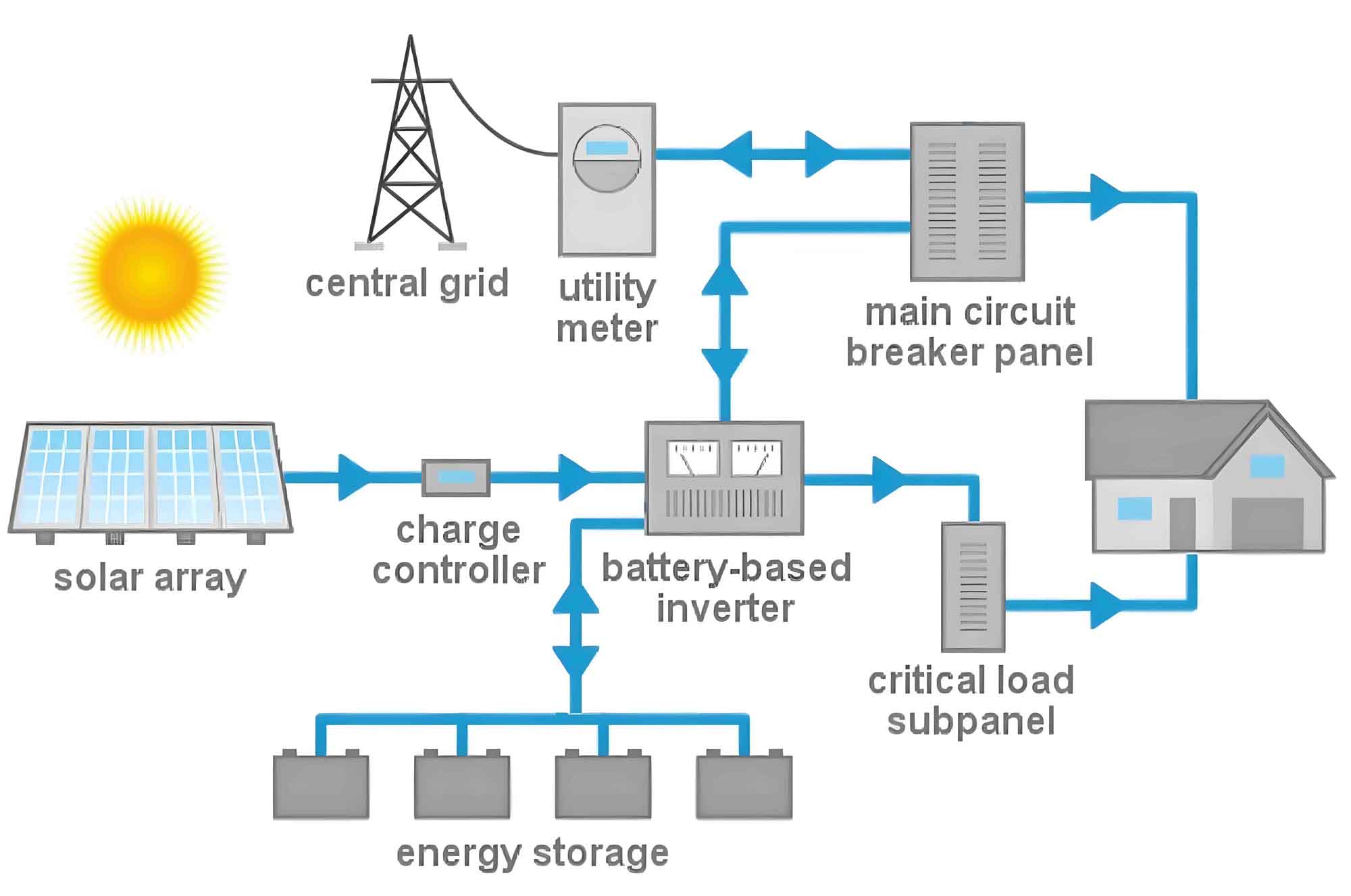Home solar energy system has gained widespread attention and adoption in recent years due to their potential to reduce electricity costs and minimize environmental impacts. As technology advances and the demand for renewable energy sources increases, it is essential to understand the economic and environmental impacts of home solar energy system. This article explores the financial benefits, cost considerations, and ecological advantages of adopting home solar energy system.

Economic Impacts
Initial Investment and Costs
The initial investment for home solar energy system can be substantial, but various factors influence the total cost. These include:
- Solar Panels: The type and efficiency of solar panels chosen significantly affect the overall cost.
- Inverters: Inverters, which convert the generated DC electricity to AC electricity, vary in price based on their efficiency and features.
- Installation: Professional installation costs can differ depending on the complexity of home solar energy system and local labor rates.
- Permits and Inspections: Obtaining necessary permits and inspections adds to the initial cost.
Table 1: Typical Costs for Home Solar Energy System
| Component | Cost Range (USD) |
|---|---|
| Solar Panels (per watt) | 0.80 – 1.50 |
| Inverters | 1,000 – 3,000 |
| Installation (per watt) | 0.50 – 1.00 |
| Permits and Inspections | 500 – 2,000 |
| Total System Cost (5kW) | 10,000 – 25,000 |
Financial Benefits
Despite the initial investment, home solar energy system offer several long-term financial benefits:
- Reduced Electricity Bills: By generating your own electricity, you can significantly lower your monthly utility bills.
- Net Metering: Many utility companies offer net metering programs that allow homeowners to sell excess electricity back to the grid, further offsetting costs.
- Tax Incentives and Rebates: Federal, state, and local governments often provide tax incentives and rebates to encourage the adoption of home solar energy system, reducing the overall cost.
List of Financial Benefits:
- Lower monthly electricity bills
- Potential earnings from net metering
- Eligibility for tax incentives and rebates
Return on Investment (ROI)
The return on investment for home solar energy system is influenced by several factors, including the cost of electricity in your area, the size and efficiency of home solar energy system, and available financial incentives. On average, homeowners can expect to see a return on their investment within 6 to 10 years, with an overall increase in property value.
Table 2: Estimated ROI for Home Solar Energy System
| System Size (kW) | Average Cost (USD) | Annual Savings (USD) | Payback Period (Years) |
|---|---|---|---|
| 3 | 9,000 – 15,000 | 500 – 900 | 6 – 10 |
| 5 | 12,000 – 20,000 | 800 – 1,500 | 6 – 10 |
| 10 | 20,000 – 30,000 | 1,500 – 2,500 | 6 – 10 |
Environmental Impacts
Reduction in Greenhouse Gas Emissions
One of the most significant environmental benefits of home solar energy system is the reduction in greenhouse gas emissions. By generating electricity from a renewable source, homeowners can decrease their reliance on fossil fuels, which are major contributors to carbon dioxide and other greenhouse gas emissions.
List of Environmental Benefits:
- Reduction in carbon dioxide emissions
- Decrease in air pollution
- Mitigation of climate change impacts
Decreased Air Pollution
Home solar energy system contribute to decreased air pollution by reducing the need for electricity generated from fossil fuels. Traditional power plants emit pollutants such as sulfur dioxide, nitrogen oxides, and particulate matter, which can harm human health and the environment. Solar energy system produce clean, renewable energy without emitting these harmful pollutants.
Table 3: Environmental Impact Comparison
| Energy Source | CO2 Emissions (g/kWh) | SO2 Emissions (g/kWh) | NOx Emissions (g/kWh) |
|---|---|---|---|
| Coal | 820 | 1.5 | 1.4 |
| Natural Gas | 490 | 0.3 | 0.4 |
| Solar (Home System) | 0 | 0 | 0 |
Conservation of Natural Resources
Home solar energy system help conserve natural resources by reducing the demand for fossil fuels such as coal, natural gas, and oil. The extraction and processing of these resources have significant environmental impacts, including habitat destruction, water pollution, and resource depletion. By generating electricity from the sun, homeowners contribute to the conservation of these valuable resources.
Energy Independence
Adopting home solar energy system also promotes energy independence. By generating their own electricity, homeowners reduce their dependence on external energy sources, which can be subject to price fluctuations and supply disruptions. This increased energy independence contributes to a more stable and resilient energy system.
List of Energy Independence Benefits:
- Reduced reliance on external energy sources
- Protection from energy price fluctuations
- Increased energy system resilience
Conclusion
Home solar energy system offer a wide range of economic and environmental benefits. While the initial investment can be substantial, the long-term financial savings, potential earnings from net metering, and available tax incentives make home solar energy system a financially sound investment. Environmentally, home solar energy system reduce greenhouse gas emissions, decrease air pollution, conserve natural resources, and promote energy independence. By adopting home solar energy system, homeowners can contribute to a more sustainable and resilient future while enjoying the economic advantages of clean, renewable energy.
4o
